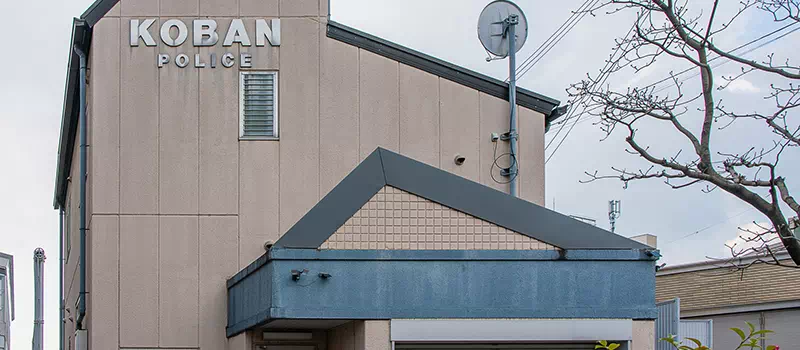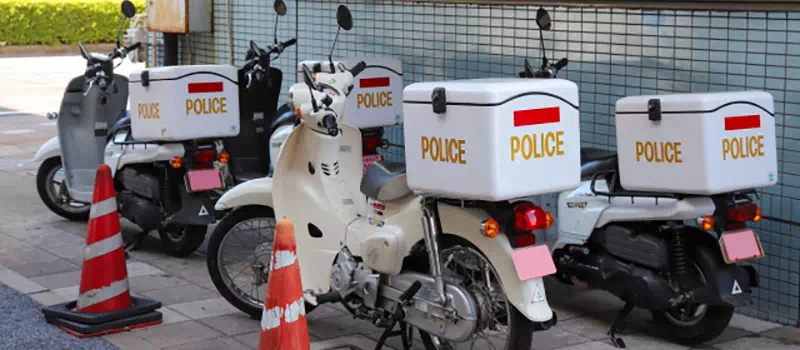Summary
Japan is known as one of the safest countries in the world. Various factors contribute to Japan's safety, including a low crime rate, a reliable police system, and a culture that values social order. Below are some of the reasons why Japan is a safe country, along with specific examples and points of caution for foreign visitors.

Reasons to be Safe
- Low Crime Rate
The crime rate in Japan is very low, especially violent crimes such as violent crimes and robberies, compared to other countries. According to statistics from the National Police Agency, the number of recognized criminal offenses in 2020 was approximately 610,000, and the crime rate per 100,000 population was approximately 480, maintaining a low level among developed countries.
- Reliable Police System
Japan's police system is extremely efficient and reliable. There are police boxes (koban) located in each community to constantly monitor local public safety. Police officers patrol the community and communicate with residents to ensure community safety.
- Social Order and Discipline
Japanese people have a culture that values social order and discipline. Good manners and courtesy in public places are encouraged, which deters crime. For example, there is little littering, traffic rules are observed, and people do not make noise in public places.
- High Standard of Living and Welfare
Japan is economically affluent and maintains a high standard of living. Social welfare, such as education and medical care, is also excellent, providing a safe environment in which people can live without committing crimes.
- Strength of Local Communities
Local communities are strongly connected, and there is a culture of mutual support among residents. Neighborhood associations and residents' associations actively conduct community safety activities and raise awareness of crime prevention.

Specific Examples
- A Society Where Lost and Found Items Return
In Japan, lost and found items are often returned after being left behind on trains or in public places. For example, even if you drop your wallet, it is common for the person who finds it to deliver it to the police box or the lost and found center at the station. This is based on the integrity and trust of society as a whole.
- Environment in which children can go to school alone
In Japan, elementary school children are seen walking to school alone. The entire community is highly aware of the need to watch over children, and volunteer watchdogs are stationed around schools.
- Safe Public Transportation
Public transportation in Japan is very safe, and crimes are rare. Security cameras are installed in stations and trains, and security guards make regular patrols. This allows passengers to use public transportation with peace of mind.
What foreign tourists should be aware of
- Scams and pickpocketing
Although the city is safe, scams and pickpocketing targeting foreign tourists can still occur. Be especially careful in tourist areas and downtown areas. If you are offered overpriced souvenirs or services, be cautious.
- Understanding Traffic Rules
Traffic rules in Japan may differ from those in other countries. For example, the culture of giving priority to pedestrians is deeply rooted, and cars always stop at crosswalks. However, foreigners who are not accustomed to vehicles driving on the left side of the road need to be careful when crossing the street.
- Preparation for Natural Disasters
Japan is frequently hit by natural disasters such as earthquakes and typhoons. Since disasters may occur during your stay, it is important to check evacuation routes at your accommodation and know how to contact the authorities in case of an emergency.
- Differences in Culture and Manners
Foreigners who are not accustomed to Japanese culture and manners may unintentionally cause trouble. For example, they need to be aware of noise in public places, rules for standing in line, and where to take off their shoes.
- Language Barrier
English may not be easily understood in Japan. Multilingual information is increasingly available in tourist areas and large cities, but is still limited in rural areas. Learning basic Japanese phrases in advance or using a translation application can be helpful.
Conclusion
Japan is a very safe country and a safe destination for tourists from around the world. A variety of factors contribute to this safety, including a low crime rate, a reliable police system, and a culture that values order. However, when visiting Japan as a foreign tourist, be aware of scams, pickpockets, traffic rules, natural disasters, and cultural differences, and enjoy a safe and comfortable stay. By taking the appropriate precautions while enjoying Japan's safe environment, you will have a wonderful travel experience.
 Back
Back